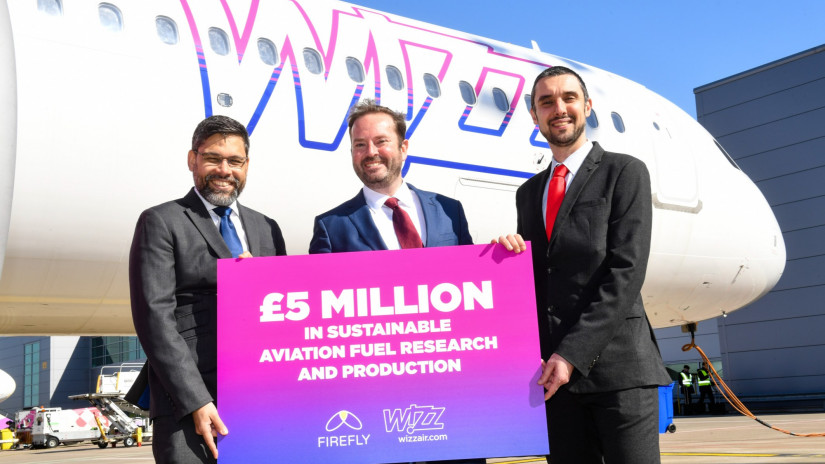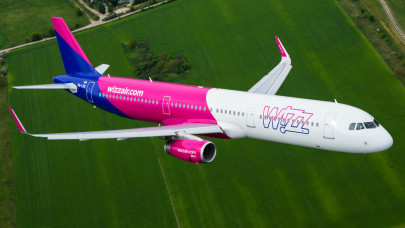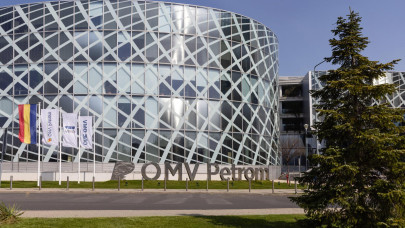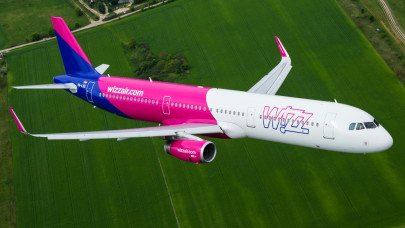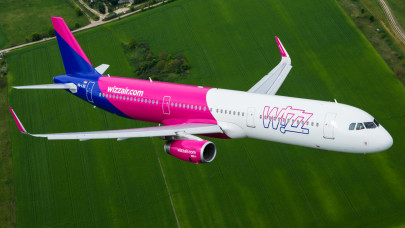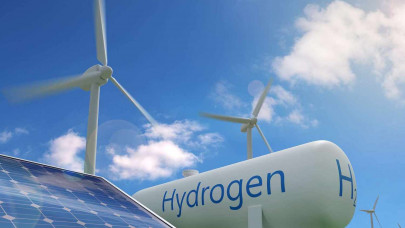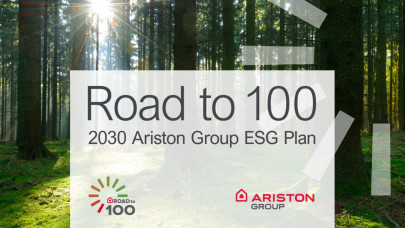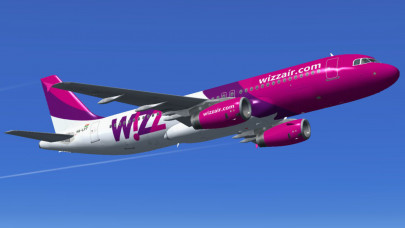Firefly specializes in a process that turns sewage sludge, a low-value waste product available in large quantities, into sustainable fuel (SAF). Over 57 million tonnes of sewage sludge are produced in the UK each year, with the potential to produce 250,000 tonnes of sustainable SAF fuel.
Firefly's sustainable fuel, which will be independently certified to the main RSB sustainability standard, is estimated to deliver a 90% reduction in greenhouse gas emissions compared to fossil aircraft fuel over a cycle of life. Firefly aims to have its first factory up and running within the next 5 years.
The agreement with Firefly and the investment in the new SAF technology is the latest step in Wizz Air's wider sustainability strategy, which includes the objective of its ambitious fleet renewal plan, the already efficient low-cost operations, operated with aircraft of state-of-the-art, and high seat density and high load factors. This will further strengthen Wizz Air's position as an industry leader in sustainability and drive its commitment to reduce carbon emissions per passenger kilometer by 25% by 2030.
In 2022, Wizz Air achieved its lowest annual carbon intensity of 55.2 grams per passenger kilometer, representing a 15% year-on-year reduction. To achieve this, the airline has invested heavily in its fleet, adding new aircraft and replacing older ones with the Airbus A321neo. The Airbus A321neo aircraft incorporates the latest technology, delivering significant environmental benefits, and can currently fly on a blend of up to 50% sustainable fuel (SAF). The weight of the new Airbus A320 family aircraft with "neo" technology has already exceeded 50% of the Wizz Air fleet. In addition to its ambitious fleet renewal program, Wizz Air is constantly working on fuel efficiency initiatives and improving the analysis of relevant data.
“In addition to fleet renewal and operational efficiency, sustainable SAF fuel is crucial to reducing aviation's carbon emissions. However, the availability of raw materials remains the main challenge for the industry. Our investment in Firefly and its SAF sewage sludge technology is a major step for Wizz Air in ensuring its long-term ability to offer its customers low fares in an increasingly environmentally sustainable way. From 2028, we aim to purchase 525,000 tonnes of SAF from Firefly over a 15-year period. This has the potential to reduce our emissions by the equivalent of 100,000 tonnes of CO2 per year, which is equal to the emissions of more than 12,000 Wizz Air return flights between London and Budapest," says Michael Berlouis, Head of Strategic Projects within Wizz Air.
The investment will accelerate the commercialization of the Firefly process, with the binding offtake agreement saving 1.5 million tonnes of carbon emissions.
"Firefly will facilitate another step towards changing the future of air travel. The raw material, sewage sludge, is available in large quantities globally, and with the help of Firefly we can use it in a really beneficial way, reducing the use of fossil fuels in the areas where decarbonization is the most difficult", says James Hygate, CEO of Firefly Green Fuels.
Firefly technology originates from the laboratories of Green Fuels, a pioneer in renewable fuels founded in 2003.

